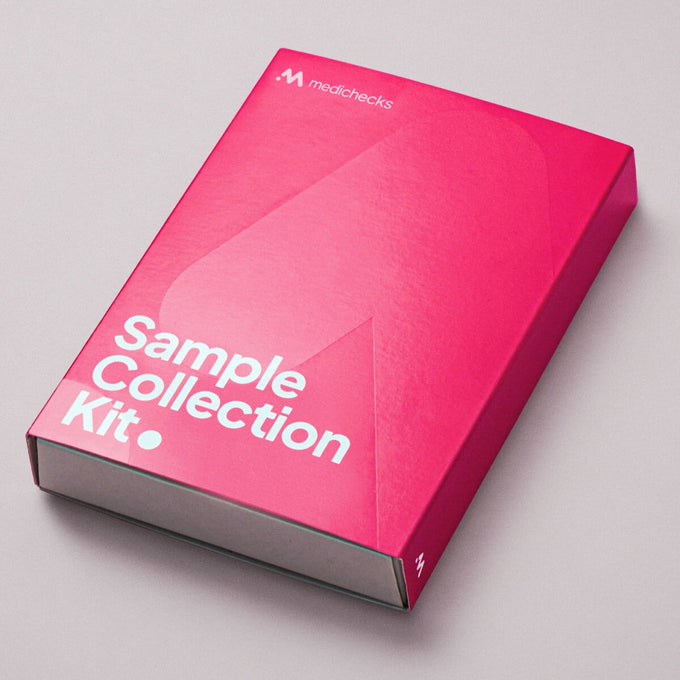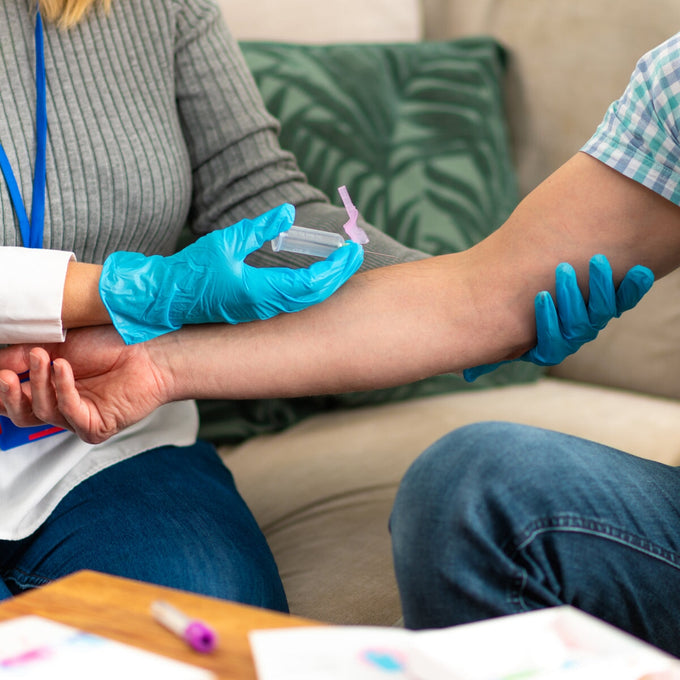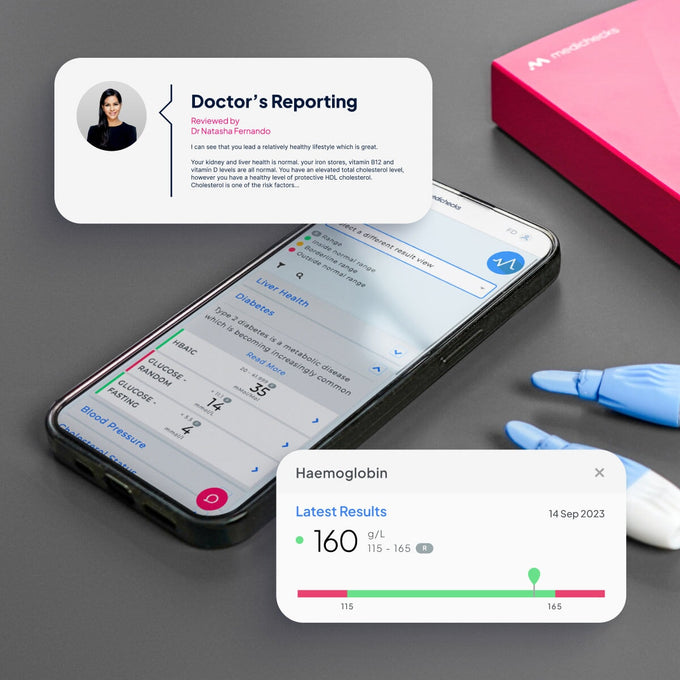Is it for you?
Do you experience irregular or heavy periods, weight gain and mood swings and want to check whether your hormones might be the cause? With our test, you can look into your menopausal status and check your thyroid health.
Our advanced hormone panel is ideal if you'd like to learn whether your hormones are normal for your stage of life or for more specific reasons, like if you're planning to start a family and want a thorough hormone MOT.













